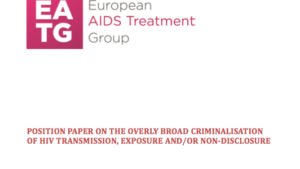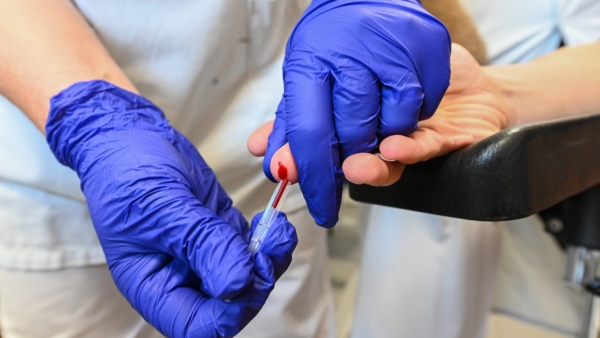Overview
There are no HIV-specific laws in Belgium, however general criminal provisions have in rare cases been used to prosecute HIV ‘exposure’ and non-disclosure in both sexual and non-sexual cases.
Article 402 of the Criminal Code states that anyone who causes another person to become ill or unable to work, by administering to him voluntarily, but without intent to kill, substances which may cause death or ‘seriously impair health’, shall be punished by imprisonment of three months to five years and a fine of between fifty euros and five hundred euros.
People with HIV have been prosecuted where their actions may have included possible exposure to HIV, both where transmission has been alleged and where it has not. People have also been prosecuted where it was alleged than an act included a risk of HIV exposure, although the allegation is not supported by science. When the offences have related to sex, prosecutions have been based on an allegation that the accused did not disclose their HIV status before the act in question.
Of the seven known cases in Belgium, the first two related to non-sexual ‘exposure’. The first occurred in 1991, where a man in Liege was sentenced to eight months in prison for aggravated assault after bitting another person. In a second case in 2002, a man was prosecuted for alleged HIV exposure for smearing blood on a door handle. Following an appeal, he received the maximum sentence under Article 402 (Brussels appeal court, 03/03/2002, n° 220/AR/2002). This was the first time that Article 402 of the Penal Code was used, the appeal court having rejected the previously used attempted poisoning charge, under Article 405, that assumed deliberate intent to commit homicide.
Data from AIDS Action Europe’s 2023 report, HIV Criminalisation in the EU, suggests there have been five cases involving sexual ‘exposure’. The first case occurred in 2007, when a man accused his ex-boyfriend of concealing his HIV status during their relationship. There was no transmission in the case, and prosecutors opted not to bring charges. The first case of sexual ‘exposure’ resulting in conviction occurred in June 2011 in Huy. The court sentenced a man living with HIV to three years in prison under Article 402 for failure to disclose his status to his wife, who it appeared contracted HIV. Since this case, there have been at least three more cases, all of which resulted in convictions.
Proposals for an amended Penal Code in 2019 included a new provision on ‘intentional spread of pathogens’, which according to explanatory notes focussed on HIV transmission. Following advocacy by civil society organisations, it was reported that suggestions only to criminalise transmission with ‘malice’, and not to include an HIV-specific provision, were adopted.
Laws
Criminal Code
Article 402
Anyone who causes illness or personal incapacity to work to another person by voluntarily administering to him, but without the intention to kill, substances which may cause death, or substances which, without being of a nature to cause death, may nevertheless seriously impair health, shall be punished by imprisonment for a period of three months to five years and a fine of fifty euros to five hundred euros.
Further resources
Analyses the criminalization of the sexual transmission of HIV that since the 2000s in countries such as Canada, Britain, France and Belgium at a time when HIV is entering the realm of chronic disease through effective antiretroviral treatment.
Author: Pezeril, Charlotte.
HIV Justice Network's Positive Destinations
Visit the Belgium page on Positive Destinations for information on regulations that restrict entry, stay, and residency based on HIV-positive status, as well as access to HIV treatment for non-nationals.


